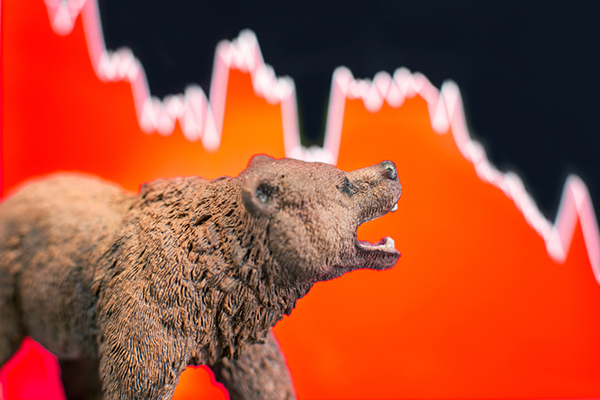‘This bear market is not over – here’s what will trigger the market bottom’
Veteran investor John Chatfeild-Roberts cautions ‘what bear markets do is suck people in and then de…
27th March 2020 10:02
by Kyle Caldwell from interactive investor
Veteran investor John Chatfeild-Roberts cautions ‘what bear markets do is suck people in and then destroy their money’. Here’s his working hypothesis for what will trigger the market bottom.

This week has seen global markets post a couple of notable daily rises, but this does not herald the end of the bear market, according to veteran investor John Chatfeild-Roberts.
On the contrary, Chatfeild-Roberts, head of strategy for independent funds at Jupiter, makes the point that strong one-day gains are a common feature of previous bear markets. The FTSE 100 index rose by 9.1% earlier this week (24 March), its second-best day on record, according to data from Refinitiv. The rally continued the next day (25 March), with the index up 4.5%.
Across the pond in the US, this week (24 March) the S&P 500 staged its largest one-day rally in 12 years, gaining almost 10%. Meanwhile, the Dow Jones saw its biggest gain since 1933, with gains of over 11%.
There are several reasons behind this renewed optimism from markets, one driver being the US Senate finally agreeing on a fiscal stimulus plan to counter the economic impact of coronavirus. Another is that Italy has recorded smaller increases in coronavirus cases, suggesting measures to contain the outbreak of the virus are helping.
But Chatfeild-Roberts cautions that the market bottom has not been reached and that investors still risk buying the proverbial falling knife.
Addressing investors in a web conference, he said: “These are big, big moves on relatively little volume and I would expect this rally and many others to peter out. Bear markets classically often have 30% retracements, so you have a big fall and then perhaps over a period of days you might get a 30% bounce.
“We haven’t really seen that in this bear market yet, but if you look back at bear markets over the past 100 years it is not unusual and I would be expecting that at some stage.
“But, of course, what bear markets do is suck people in and then destroy their money. So those sorts of retracements, we think, are an opportunity to make sure that anything you didn’t want to hold you can get out of at a reasonable price.”
Chatfeild-Roberts says that he has no idea when the market bottom will come, but that the bottom will be when “the news looks absolutely awful”.
He adds: “My working hypothesis is that it may well be death rates in the United States. We can see already that the steepness of the mortality line in the US is the fastest, and that’s comparing with Italy, Spain, China, Korea, Japan, and the rest. Although I am obviously not a medical man, just statistically it seems to me that is going to ramp up pretty quickly. Perhaps that will be the generator of the market bottom.
“But you can absolutely guarantee when that market bottom arrives, the news will be absolutely appalling, or at least perceived to be appalling, and psychologically people will throw the towel in. That, of course, will be the opportunity to buy, possibly a once in a generation or lifetime, good companies where for whatever reason the market thinks their price should go to zero.”
Other fund managers are also adopting a cautious stance, including Paul Niven, fund manager of F&C Investment Trust, and Simon Gergel, manager of Merchants Trust.
Gergel noted on 17 March (prior to the FTSE 100 recording its second-best ever day on record earlier this week): “There could be a very sharp recovery at some point – markets tend to move well before fundamentals improve. We have seen the first signs of a recovery in China after the Covid-19 lockdown period, and other epidemic situations have historically not lasted that long.
“But we are not complacent either; this could go on for many months and have lasting consequences. So we are trying to add value from stock selection, not from calling when this pandemic gets under control and when markets will recover.”
This article was originally published in our sister magazine Money Observer, which ceased publication in August 2020.
These articles are provided for information purposes only. Occasionally, an opinion about whether to buy or sell a specific investment may be provided by third parties. The content is not intended to be a personal recommendation to buy or sell any financial instrument or product, or to adopt any investment strategy as it is not provided based on an assessment of your investing knowledge and experience, your financial situation or your investment objectives. The value of your investments, and the income derived from them, may go down as well as up. You may not get back all the money that you invest. The investments referred to in this article may not be suitable for all investors, and if in doubt, an investor should seek advice from a qualified investment adviser.
Full performance can be found on the company or index summary page on the interactive investor website. Simply click on the company's or index name highlighted in the article.